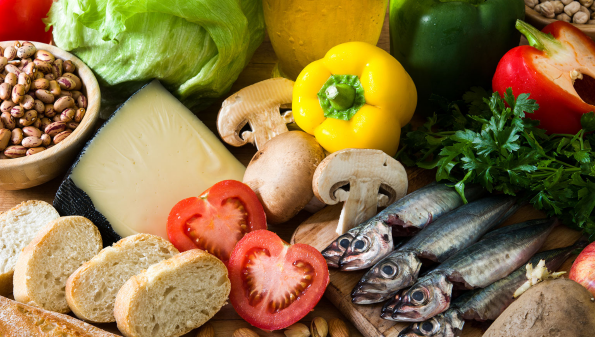I knew this year would be different.
From all the time I’ve gone to health clubs, I’m used to the annual ritual at the beginning of the year. For maybe the first two weeks, the place is twice as full as it usually is. Then normalcy sets in, and all those New Year’s resolutions are abandoned.
But this year, when I went on the Sunday after New Year’s Day, it was no busier than usual (which, on late Sunday afternoons, is pretty empty).
Does this mean that the coronavirus has eaten into that idealistic but futile American pastime known as New Year’s resolutions?
So it would seem.

David Leonhardt, columnist for The New York Times, has some observations about New Year’s resolutions. He wouldn’t be working for the Times if he weren’t a top-notch journalist, so he has discovered that they don’t work.
Instead, he recommends doing a food audit at the New Year, with a view to tweaking diets to make them healthier.
Mr. Leonhardt probably did not have to do a lot of investigative journalism to uncover his main points: the keys to maintaining a healthy weight are calories and exercise.
Nor does it come as a huge surprise to see him tout the fabled Mediterranean diet, which is virtually guaranteed to make you immortal, as it does all the inhabitants of southern European nations.
One point that is often overlooked: real Mediterranean diets often don’t have much variety. A friend who took a trip to Greece recently said, “I was getting tired of eating nightshades,” referring not to poisonous plants but to such items as tomatoes, peppers, and eggplant.
Another friend grew up as a peasant in postwar Italy. It was pretty much pasta and tomato sauce.
On the plus side, there’s plenty of wine.
All the same, Mr. Leonhardt’s recommendation does have value. It makes more sense to look at your diet with a view to tweaking it here and there rather than to immerse yourself in a crash diet where you eat nothing but bananas or grapefruit for 10 days.
In my case, I have taken to eating an apple as a midafternoon snack. It is particularly appealing when accompanied by homemade salted caramel sauce, although I have also discovered that Adriatic (an inlet of the Mediterranean!) fig preserves are a commendable addition.
There is a great deal of concern in the produce industry, as elsewhere, about the extremely unhealthy American diet. The most common reasons are widely discussed, but I think there is also another dynamic at work.
Americans lead unusually stressful lives—often isolated, overworked, feeling rushed even when there is no reason to hurry. They have to offer themselves gratification in some form, and if that gratification takes the form of potato chips or soft ice cream, it is arguably better than a cigarette or a shot of whiskey.
There is also the subtle issue of guilt, which in this context is quite insidious. You know you are not supposed to have junk food: you have seen reminders that it’s unhealthy almost as often as you have seen ads for it. You feel guilty for eating these foods, which of course makes you feel bad.
This bad feeling serves as a punishment of sorts, so you have, so to speak, paid the price for your sin, and are therefore free to repeat it.
All of this, of course, takes place far beneath the surface of consciousness.
It is frustrating for the produce industry to constantly improve the quality and variety of its offerings only to see per capita fruit and vegetable consumption dwindle from year to year. All the same, it is a noble effort (apart from the commercial rewards); after all, it is hard to fault people who are trying to bring superior produce to the public.
The solution in the long run probably resembles Mr. Leonhardt’s recommendations: tweaking people’s food preferences little by little rather than trying to cram total change down their throats.



